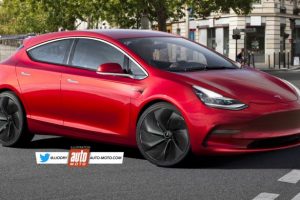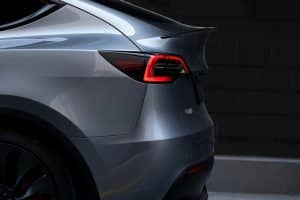Key Points
- 💡 Exxon Mobil plans to enter the lithium market, establishing its initial phase of lithium production in the U.S. by 2027.
- 🔋 They aim to create Mobil Lithium, becoming a lead supplier of lithium for EV batteries by 2030.
- 🌎 Exxon’s approach involves using oil and gas drilling methods to extract lithium from saltwater, touting lower environmental impact compared to traditional mining.
- 💰 This move aims to contribute to U.S. energy stability, support climate initiatives, and cater to the growing demand for lithium, expected to quadruple by 2030.
- ⚙️ The direct lithium extraction (DLE) process they’ll use produces fewer carbon emissions and requires less land than conventional mining.
Oil giant Exxon Mobil has announced plans to enter the market for the key electric vehicle (EV) battery mineral lithium, stating that it plans to set up its “first phase” of lithium production in the U.S. by 2027.
Exxon will produce lithium in southwest Arkansas, with initial production starting as soon as 2027, according to a press release shared on Monday. The company arm will be branded Mobil Lithium, and it aims to be a lead supplier of lithium for EV batteries by 2030.
Earlier this year, Exxon got the rights to over 120,000 gross acres of the Smackover Formation, which houses one of the most vast reserves of lithium in North America. The company expects the site to help contribute to U.S. energy stability, along with progressing U.S. climate initiatives and supporting manufacturing.
It also says current talks with potential partners, including EV and battery manufacturers, are still ongoing.
“Lithium is essential to the energy transition, and ExxonMobil has a leading role to play in paving the way for electrification,” ExxonMobil Low Carbon Solutions President Dan Ammann said. “This landmark project applies decades of ExxonMobil expertise to unlock vast supplies of North American lithium with far fewer environmental impacts than traditional mining operations.”
Exxon says it will use oil and gas drilling methods in the area to reach lithium-rich saltwater in reservoirs 10,000 feet beneath the ground. The company plans to use direct lithium extraction (DLE) to separate the mineral from the surrounding saltwater before converting the lithium to battery-grade materials. Additionally, Exxon says it will re-inject the remaining saltwater back into the reservoirs once the process is complete.
Notably, the company says the DLE process produces fewer carbon emissions than hard rock mining, and it requires less land.
“South Arkansas is our state’s all-around energy capital, producing oil, natural gas, and now thanks to investments like ExxonMobil’s and their combination of skills and scale, lithium,” Arkansas Governor Sarah Huckabee Sanders said. “My administration supports an all-of-the-above energy strategy that guarantees good, high-paying jobs for Arkansans – and we’ll continue to cut taxes and slash red tape to make that happen.”
Exxon says it expects demand for lithium to quadruple by 2030, at which point it aims to produce enough battery-grade lithium to supply over a million EVs per year.
Interestingly enough, Exxon invented the lithium-ion battery in 1972, though the company stepped away from the line of products. Now, they’re used in smartphones and other devices, and at a much larger scale, they’re also used in EVs.
Several companies have announced investments in lithium production, especially as the U.S. hopes to reduce reliance on foreign battery supply chains. One example includes EV giant Tesla, which is hoping to begin lithium refining in Robstown, Texas, in 2024.





